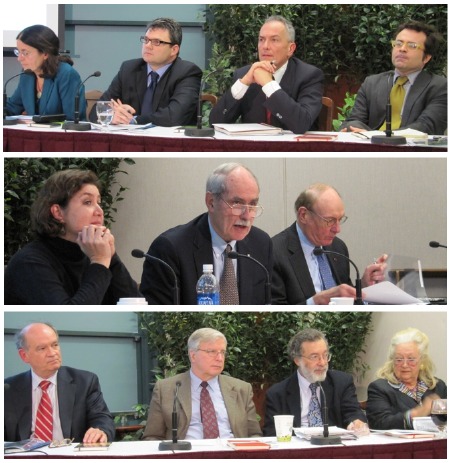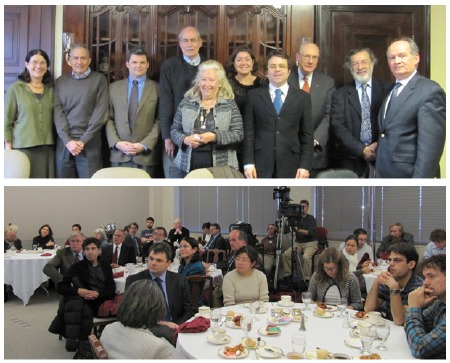Latin America 2060: Pardee Center Hosts Symposium and Task Force Meeting

The Task Force on Latin America 2060 – convened by the Boston University Frederick S. Pardee Center for the Study of the Longer-Range Future in collaboration with the BU Latin American Studies Program – met at Boston University on November 18-19, 2010.
On Thursday, November 18, 2010, a public symposium was held where the Task Force members presented their ideas in three panels which focused, respectively, on the development, political, and environmental and social aspects of Latin America’s regional futures. The public symposium was open to the public and was attended by an audience of some 40 scholars, including faculty members and students.
On Friday, November 19, 2010, the Task Force members met at the Pardee Center to deliberate on the discussions from teh previous days and discuss overarching lessons and themes for the final Task Force report. The result of these deliberations is likely to be published as a Pardee Center Task Force Report during early 2011.
The public symposium on November 18 began at lunch with welcome comments from Pardee Center Director, Prof. Adil Najam, and the Director of the BU Latin American Studies Program, Professor David Scott Palmer, who is the co-convener of the Task Force along with Professor Carlos Blanco.
Th

The second panel of the day was on political and policy issues was chaired by Prof. David Scott Palmer, of the Boston Univeristy Department of International Affairs and of the BU Latin American Studies Program. He also presented at the panel on the state and future prospects of democracy in Latin America. The panel also included Prof. Riordan Roett, from Johns Hopkins University, who looked at the changing dynamics of U.S. relations with Latin America. The final presentation on this panel came from Prof. Silvia Inclan, from Universidad Nacional Autonoma de Mexico, who talked about judicial reform in Latin America and the prospects for the rule of law.
The final panel met with Prof. Carlos Blanco, from the Boston University Department of International Relations, as the Chair. The first presentation was from Prof. Tom Kunz, Director of the Boston University Center for Ecology and Conservation Biology, who talked about environment sustainability and the biodiversity of Latin America, in particular Ecuador. He was followed by Dr. Enrique Saravia, from the Getulio Vargas Foundation in Brazil, who presented suggestions to achieve effective and sustainable governance in Latin America. Prof. Carlos Blanco then presented his paper which focused on the reforms related to political parties, public administration, state power, the office of presidents, and decentralization in Latin America. Finally, Dr. Anitra Thorhaug of Yale University and the U.S. Club of Rome ended the conference by sharing the broader environmental implications to environment, population, food and water in 45 years in Latin America.
Note: Project details, here. Videos of all three panels will be posted soon at the Pardee Center Videos page.